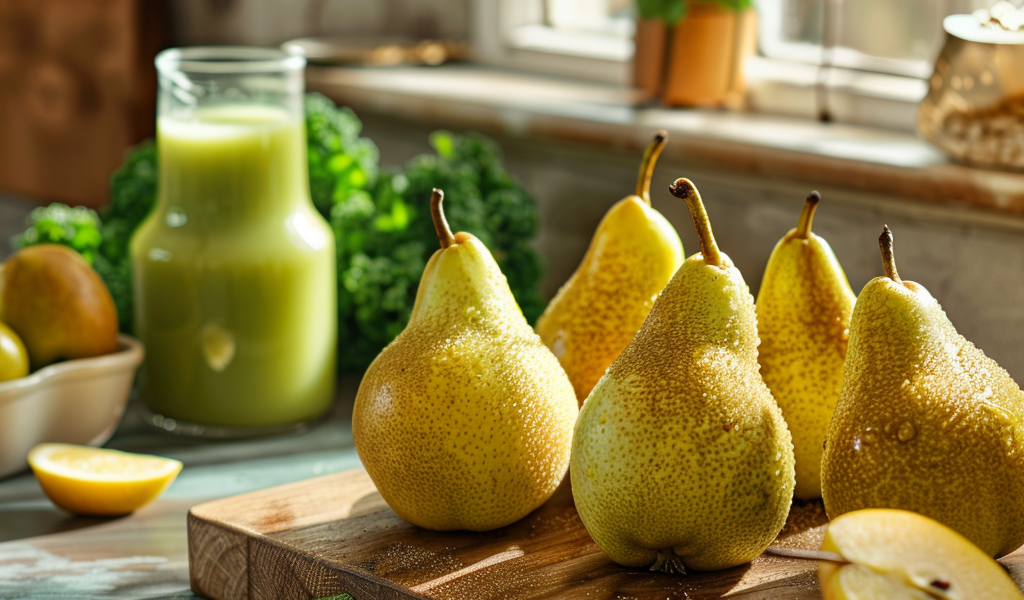In a recent social media push, Washington-based cancer dietitian Nichole Andrews has taken to TikTok to advocate for the inclusion of pears in daily diets, highlighting their potential health benefits, particularly in cancer risk reduction. With a following of 178,700, Andrews has emphasized the bell-shaped fruit’s impressive nutritional profile, which includes high fiber, antioxidants, and essential nutrients.
According to Andrews, a single medium-sized pear contains approximately 6 grams of fiber, which represents about 21% of the recommended daily intake. This fiber content is notably higher than that found in a cup of kale, making pears a superior choice for those looking to boost their fiber intake. The significance of dietary fiber goes beyond mere digestion; it plays a crucial role in reducing the risk of colorectal cancer and regulating blood sugar levels.
In a TikTok video that recently garnered over 13,000 views, Andrews referred to pears as her “favorite food for reducing cancer risk.” Her advocacy is grounded in scientific findings that suggest a diet rich in whole foods, including fruits like pears, can contribute to longevity and overall health. While it is acknowledged that cancer risk cannot be entirely eliminated due to genetic factors, a balanced diet can significantly influence one’s health outcomes.
One of the key benefits of pears, as highlighted by Andrews, is their ability to lower blood sugar levels. Research indicates that each weekly serving of pears is associated with a 3% reduction in the risk of developing Type 2 diabetes. This is particularly relevant in today’s health landscape, where diabetes has become increasingly prevalent. Most of the fiber in pears is found in the skin, so consuming them unpeeled maximizes their nutritional benefits.
In addition to their fiber content, pears provide a substantial amount of vitamin C. A medium-sized pear contains about 8 milligrams of this essential vitamin, contributing to the daily recommended intake of 90 mg for men and 75 mg for women. Vitamin C is known for its antioxidant properties, which can help combat oxidative stress in the body and may play a role in reducing the risk of certain cancers, including breast and lung cancer.
Moreover, the antioxidants found in pears can help protect cells from damage, further supporting the body’s defenses against cancer. These compounds, along with fiber, make pears a multifaceted fruit that not only satisfies hunger but also promotes health.
Incorporating pears into your diet can be simple and delicious. They can be enjoyed fresh, added to salads, blended into smoothies, or even baked into desserts. The versatility of pears makes them an easy addition to a variety of meals, allowing individuals to reap their health benefits without sacrificing taste.
As the conversation around cancer prevention and healthy eating continues to grow, the message from dietitians like Andrews is clear: making informed dietary choices, such as including pears in your daily meals, can serve as a proactive step toward better health. By focusing on whole foods and nutrient-rich options, individuals can take charge of their dietary habits and potentially lower their risk of chronic diseases.
In summary, the humble pear is more than just a tasty snack; it is a powerful ally in the quest for better health. With its high fiber content, role in blood sugar regulation, and antioxidant properties, this fruit deserves a prominent place in our diets. Whether you are looking to enhance your nutritional intake or simply enjoy a delicious fruit, pears offer a myriad of health benefits that can aid in disease prevention and promote overall wellness.





